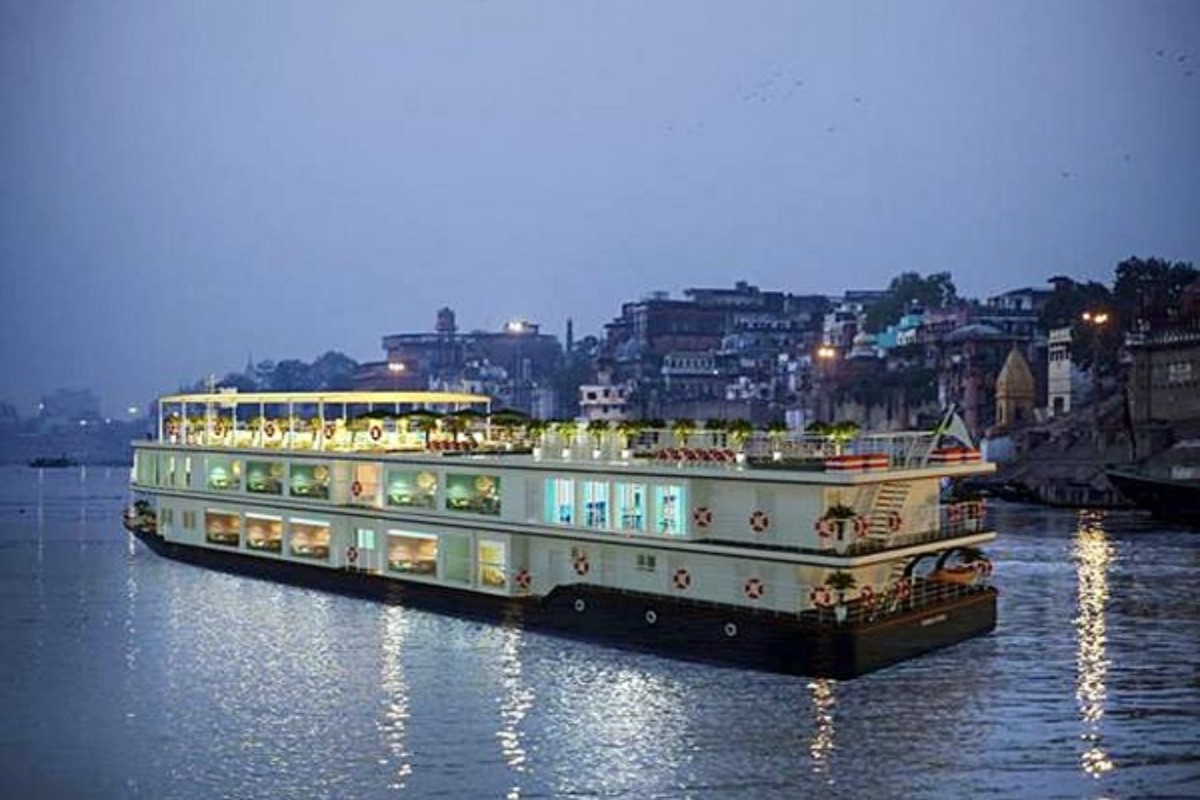Ptolemaic-era temple uncovered in Egypt
The inclination angle of the towers indicates the original height of the temple could be 18 metres, which is similar to the Luxor Temple
The Union government is also planning to launch a well-defined and consistent cruise tourism policy in line with international standards and practices.

In the last nine years, the Narendra Modi government has placed special emphasis on developing the entire ecosystem of tourism in the country.
The Union government is also planning to launch a well-defined and consistent cruise tourism policy in line with international standards and practices. This policy will encompass various critical aspects such as GST, taxation, excise, and custom duties, both at the central and state levels, with the aim of fostering the growth of this emerging industry within India.
Development of cruise tourism and lighthouse tourism are being actively considered under the Ministry of Ports, Shipping and Waterways (MoPSW)’s flagship scheme Sagarmala Programme. For promoting tourism in maritime states under Sagarmala, projects have been identified in convergence with the Ministry of Tourism and tourism development departments of maritime state governments.
Advertisement
Over a period of the last 9 years, Sagarmala Programme has completed 11 Projects worth Rs 267 crore promoting coastal & cruise tourism and Island Development. Some of these projects include Cruise Passenger Facilitation Centre at Chennai, Construction of International Cruise Terminal at Cochin and development of Cruise Berthing and Cruise Passenger facilities at Mormugao Port.
Under the Maritime India Vision 2030, the Union Government envisions to establish India as the premier cruise hub in the Asia Pacific region. To achieve this goal, significant steps are being taken, including the development of state-of-the-art cruise terminals, the implementation of standardized procedures, and the introduction of e-visa facilities, among other measures. Going forward, the objective is to increase the annual number of cruise passengers in India to 18 lakhs by 2030, up from the current figure of 4.72 lakhs.
In accordance with the Maritime Amritkaal Vision 2047 launched by Prime Minister Narendra Modi during the recently concluded Global Maritime India Summit 2023 in Mumbai, it is projected that India will have 25 operational cruise terminals by 2047, with an estimated annual passenger count of approximately 5 million cruise passengers per year.
India has enhanced its focus on the cruise sector with the Ministry of Ports, Shipping and Waterways (MoPSW) actively promoting cruise tourism for its vast economic positive impact, the potential for job creation, for earning foreign exchange, amongst many other benefits. One of the key thrust areas is to develop cruise destinations at tourism places of coastal states and islands.
On November 3, Union Minister for Ports, Shipping and Waterways Sarbananda Sonowal flagged off the maiden
voyage of the vessel Costa Serena, the first International Cruise Liner in India from Mumbai.
On the occasion, Sonowal said, “The launch of Costa Cruises’ domestic sailings in India thus is a momentous occasion that signifies the dawn of a new era in cruising and tourism. This initiative has been driven by the “Dekho Apna Desh” initiative of our Prime Minister Narendra Modi.”
The launch of Costa Cruises’ domestic sailings has been made possible by a series of initiatives taken by the government to promote and revitalize the cruise tourism industry in India.
Costa cruises, Italy is part of Carnival Corporation, one of the largest cruising conglomerates in the world with reputed cruise brands. These measures include guaranteed berths to cruise ships, removal of Ousting charges, Concessional uniform single rate for all Major ports, Volume discounts in cruise tariff up to 30 per cent for domestic cruise ships, waiver of cabotage for foreign cruise vessels, Uniform SOPs for Customs, Immigrations, CISF, Ports, upgradation and modernization of cruise terminals with enhance passenger facilities, etc.
One of the most significant steps in this journey taken recently was the conditional IGST exemption to foreign flag foreign going vessel when it converts to coastal run, which substantially reduced the financial burden on foreign cruise operators.
As a result of these initiatives, from 102 Cruise ship Calls and 84,000 Passengers handled in 2013-14, the tally went up to 227 calls and 4.72 lakh passengers during 2022-23 representing an increase of 223 per cent in cruise calls and 461 per cent in cruise passengers in the last 9 years.
River cruise tourism has also seen a 180 per cent rise in operations during the last 9 years.
An increasing number of international cruise liners are demonstrating a growing interest in the Indian cruising industry, and numerous new services are in the pipeline and expected to start soon, promising a vibrant future for this burgeoning sector.
Advertisement